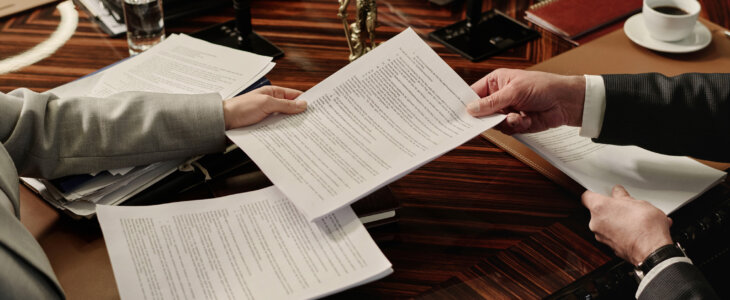When pursuing a personal injury lawsuit in Chicago, the discovery process is crucial for both parties to gather relevant information and evidence to support their case. Discovery ensures a fair and just legal process, allowing each side to uncover facts and build a strong foundation for their arguments.
In this guide, our Chicago personal injury attorneys explore the discovery process in a personal injury lawsuit, providing valuable insights and understanding of the various tools and methods commonly utilized by plaintiffs and defendants.
Understanding Discovery in a Personal Injury Lawsuit
Discovery is the formal process in which parties involved in a lawsuit share information and evidence related to the case. In a personal injury lawsuit, this process is fundamental as it allows both the injured party (plaintiff) and the party being sued (defendant) to disclose evidence, assess the strengths and weaknesses of their case, and prepare for potential settlement negotiations or trial. By engaging in the discovery process, the parties can obtain a clearer understanding of the facts surrounding the case and gather the necessary evidence to support their claims.
The Purpose of Discovery in Personal Injury Cases
The primary purpose of the discovery process in a personal injury case is to ensure that both parties have access to all relevant information and evidence. This helps to level the playing field, allowing each side to build their case based on a complete understanding of the facts. By obtaining and disclosing evidence through discovery, the parties can determine the merits of their case, assess the potential value of damages, and make informed decisions regarding settlement negotiations or trial strategies.
Common Discovery Tools in Personal Injury Lawsuits
To facilitate the exchange of information and evidence, several discovery tools are commonly used in Chicago personal injury lawsuits. These tools include:
Interrogatories
Interrogatories are written questions that one party requests from another party involved in the lawsuit. The receiving party must answer these questions under oath and within a specified time frame. Interrogatories allow each side to gather specific information about the case, such as details about the incident, injuries sustained, and other relevant facts. By using interrogatories, attorneys can obtain essential details from the opposing party, helping to build a comprehensive understanding of the case.
Requests for Production
Requests for production involve one party requesting the other party to produce specific documents, objects, or tangible things for inspection, copying, or testing. In a personal injury case, this may include medical records, photographs of the accident scene, or any other relevant evidence. Requests for production help both parties obtain and review crucial evidence that may support their claims or defenses.
Requests for Admissions
Requests for admissions are written requests in which one party asks the other party to admit or deny specific facts or statements related to the case. By using requests for admissions, attorneys can narrow down the disputed issues and establish certain facts without the need for further investigation or evidence gathering. This tool helps streamline the litigation process and allows both parties to focus on the key elements of the case.
Depositions
Depositions are formal proceedings in which a party or witness provides sworn testimony outside of the courtroom. Attorneys have the opportunity to ask questions and elicit responses under oath, which are recorded by a court reporter. Depositions allow attorneys to gather information, assess the credibility of witnesses, and gather evidence that may be used during trial. They also provide an opportunity for both parties to determine the strengths and weaknesses of their case based on the testimony provided.
The Importance of Experienced Chicago Personal Injury Attorneys in the Discovery Process
Navigating the discovery process can be complex and challenging. Having an experienced personal injury attorney by your side is crucial to ensure that your rights are protected and that you can effectively gather and present evidence to support your case. Here’s how an experienced Chicago personal injury attorney can help you during the discovery process:
Developing a Comprehensive Discovery Plan
An experienced personal injury attorney will work closely with you to develop a comprehensive discovery plan. This plan outlines the specific information and evidence needed to build a strong case. By crafting well-designed discovery requests and strategies, your attorney can gain a clear understanding of the disputed issues and the opposing party’s tactics. This enables them to build a compelling case, negotiate favorable settlements, or present a persuasive argument in court.
The discovery process is a critical phase in a Chicago personal injury lawsuit. Having an experienced Chicago personal injury attorney on your side during the discovery process ensures that your rights are protected, and you can pursue the compensation you deserve.
Contact Our Chicago Personal Injury Attorneys
If you have been injured in an accident, it is crucial to consult with an experienced Chicago personal injury attorney. Contact our skilled team of Chicago personal injury attorneys for a free consultation to discuss your rights and explore your legal options.

